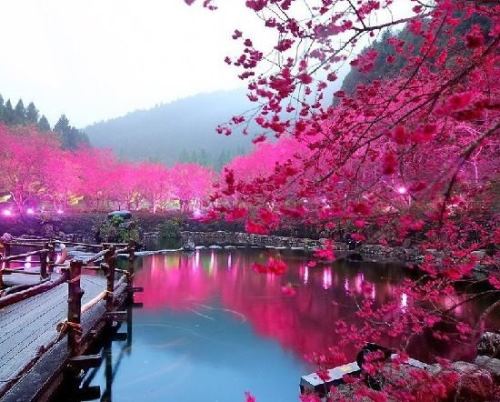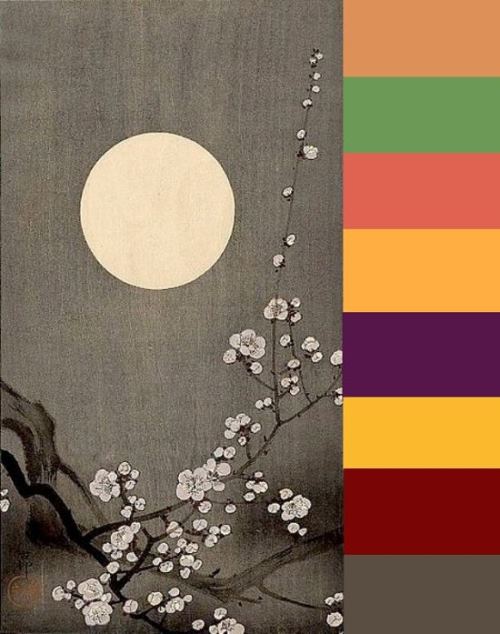Japanese traditionally forbidden colors
Historically, the forbidden color, known in Japan as kindziki, is the color of clothing, the monopoly for the use of which was a certain privelege of officials. Also, the system of forbidden colors appeared in the 8th century, during the time of the existence of the ritciero system. However, preserved to the present day, it no longer has a legal status. In particular, the forbidden colors include the seven colors established in the X-XI centuries. Among them – Pale-green, Sumach, Pale-red, Yellow-red, Dark purple, Gardenia, Rock and Dark-sappan. However, in the XIX century, during the Meiji period, they removed the ban from all colors, except for sumac, yellow-red and gardenia.
Meanwhile, exceptionally the Emperor of Japan could use Sumac’s color (Japanese: ko-roden) for the outer clothing. To date, the ceremonial Japanese clothing of the emperor during the enthronement – painted only in this sumac color. Besides, the source of the dye is fruits of sumac (Rhus succedanea) – a Japanese wax tree.
Pale green (Japanese aoshiro-tsurubami) – the color of the outer clothing of the emperor of Japan. As an exception, this color could be worn by the mistresses of the monarch, who were on duty as palace servants of the 4th rank, as well as secretaries of the treasury of rank 6.
Pale red (Yak-akashiro-tsurubami) – the color of the outer clothing of the ex-emperor of Japan.
Yellow-orange (o: dan) – the color of the outer clothing of the crown-prince of Japan.
Dark purple (yaku fukamurasaki) – the color of the outer clothing of aristocrats of the 1st rank.
Gardenia (Y. Kutinasi) – a spare forbidden color, a substitute for yellow-red color. Produced from the fruits of gardenia jasmine (Gardenia jasminoides). Meanwhile, only after the imperial rescript one could receive the permission to wear this color.
Dark purple (Japanese fukuhi) – a spare forbidden color, a substitute for a dark purple color. Permission to wear this color could be granted by an imperial rescript.
Dark Sappan (fukasuo 🙂 – a spare forbidden color, a substitute for a dark purple color. Produced from the fruit of the tsezalpinia sappan (Caesalpinia sappan). Also the imperial rescript could grant the permission to wear this color.
sources
ja.wikipedia.org/wiki/禁色
public group vk.com/paradoks_japan













